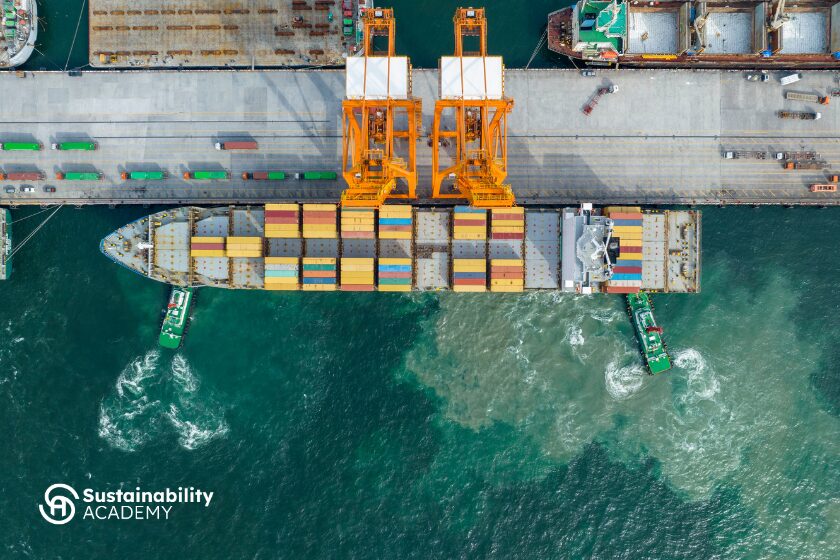In a landmark development for global climate governance, the UN Maritime Agency has introduced the Global Shipping Fuel Standard and Carbon Pricing Rule, a regulatory framework set to come into force by 2027.
This comprehensive initiative, spearheaded by the International Maritime Organization (IMO), marks a pivotal step in addressing emissions from the shipping industry—one of the last major sectors without binding international climate regulations. The rule aims to transform the environmental footprint of maritime transport, which currently contributes nearly 3% of total global greenhouse gas emissions. By establishing mandatory fuel standards and implementing an international carbon pricing mechanism, the regulation seeks not only to accelerate the sector’s transition toward cleaner energy sources, but also to harmonize disparate national efforts under a single global framework. The move represents the most ambitious and coordinated action to date for decarbonizing international shipping, and signals a shift toward systemic climate accountability in the maritime domain.
Overview of the UN Maritime Agency’s Global Shipping Fuel Standard and Carbon Pricing Rule
Central to this reform is a progressive fuel standard targeting large ocean-going vessels exceeding 5,000 gross tonnage. These vessels, which contribute over 85% of maritime CO₂ emissions, will be required to progressively reduce the greenhouse gas intensity of the fuels they consume. The policy promotes a transition from traditional heavy fuel oil and marine diesel to sustainable alternatives such as green ammonia, methanol, and hydrogen.
The move is designed to send a clear market signal, encouraging investment in cleaner maritime technologies and fuel infrastructure globally.
Carbon Pricing: Driving Emissions Reduction through Financial Incentives
Complementing the fuel standard, the IMO’s carbon pricing system introduces a dual-threshold mechanism. Ships emitting above a lower threshold will incur a charge of $100 per ton of CO₂, with higher-emitting vessels facing a $380 per ton levy. This structure is intended to reward operational efficiency while disincentivizing carbon-intensive practices.
Revenue generated will support the newly established Net-Zero Fund, modeled after similar aviation-sector initiatives. The fund will provide grants and concessional financing to assist developing nations in adopting clean maritime infrastructure, with a strong emphasis on equitable transition.
Global Reaction and Geopolitical Dynamics
The proposal has garnered support from 63 countries, including the EU, China, India, and the UK. However, opposition remains from key oil-exporting nations such as Saudi Arabia and Russia, which have expressed concerns over potential impacts on trade competitiveness.
Despite geopolitical friction, support for the IMO’s technical cooperation program continues to expand. This includes initiatives to aid port infrastructure planning in emerging economies such as Ghana and South Africa, signaling a potential shift toward broader alignment on climate goals.
Implications for Industry Stakeholders
The regulation presents both challenges and opportunities. Shipping companies that have proactively invested in dual-fuel vessels and sustainable operations are likely to benefit from early-mover advantages, including preferential trade agreements and access to new markets.
Ports, likewise, will need to accelerate infrastructure development to accommodate alternative fuels. Efforts like the Port of Rotterdam’s Green Corridor—now being replicated in Singapore and Los Angeles—demonstrate how strategic upgrades can enhance competitiveness and attract international funding.
A Turning Point in Maritime Sustainability
The UN Maritime Agency’s Global Shipping Fuel Standard and Carbon Pricing Rule represents more than a climate initiative—it is a systems-level transformation. Achieving compliance will require cross-sector coordination, technological innovation, and sustained policy commitment.
While significant hurdles remain, including fuel technology maturity and geopolitical resistance, the foundation is now in place for the maritime industry to align with global decarbonization objectives. Timely adaptation will be critical for stakeholders aiming to remain competitive in this evolving regulatory landscape.
For professionals navigating this transition, continuous learning is vital. Programs such as the Online Certificate on Sustainability in Yachting offer targeted education in sustainable maritime practices, supporting alignment with the IMO’s broader environmental objectives. In a sector facing growing regulatory scrutiny, expertise in green innovation and compliance is rapidly becoming a key differentiator.

